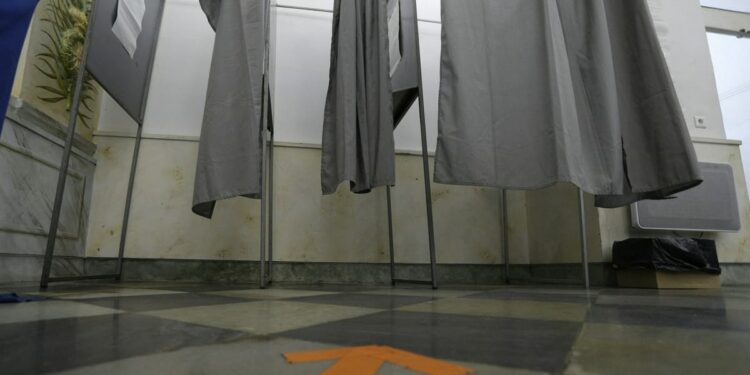For more polling data from across Europe visit POLITICO Poll of Polls.
“I am a local citizen, this is my country, I was born here. I don’t have any other native land. Why should I go and prove something to someone?” said Duguškin, who works in the restaurant business, adding that he feels Latvian and European.
Eduards, who is an ethnic Ukrainian, said noncitizens are often made scapegoats for the existence of the Soviet Union.
“I think my family is a good example of how that just doesn’t make sense. On my mother’s side, my relatives were declared enemies of the people by the Soviet Union. On my father’s side, my relatives barely survived Holodomor [in 1932-33, also known as the Ukrainian Famine],” he said, adding that his family in 1991 voted “for” Latvia’s independence from the Soviet Union.
According to Eduards, the voices of stateless people are not heard, and many of them have given up on democracy and justice.
“Because the last time many of these people voted was when they voted for the independence of a country that made them stateless,” he said.
The proportion of noncitizens in both countries is naturally decreasing, as most of them are elderly (and some did go through the naturalization process). The number has dropped from about 300,000 in 2011 to 175,000 in the current year in Latvia, and from 86,000 in 2011 to 66,000 in 2021 in Estonia.
“It’s a complete shame to think that this is the way to go, to resolve the problem by waiting for all of us to die,” said Eduards.
Source link : https://www.politico.eu/article/baltic-aliens-eu-election-vote-european-parliament-slogan-unhcr-data-estonia-latvia-stats/
Author :
Publish date : 2024-06-08 07:00:00
Copyright for syndicated content belongs to the linked Source.



